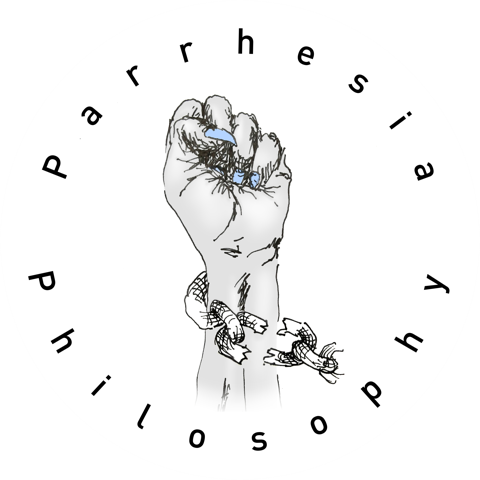 Spring Programme
Spring Programme
Philosophy, Formalization & Truth as Creative Process
3 April - 5 June, 2023, Parrhesia, Berlin
Three courses and a workshop taught in person and online via Zoom. For any questions please email This email address is being protected from spambots. You need JavaScript enabled to view it..
Payment may be made by credit card (via Paypal), Paypal, or offline Bank Transfer.
|
When: 3 April - 5 June 2023 Where: Gerichtstrasse 45, 13347 Berlin-Wedding How: All courses are taught in hybrid format (in person and on Zoom). Video recordings are made available for those unable to attend. Course readings can be accessed online before the school begins. Links to the Zoom classroom are sent out prior to the course starting. All payment must be made via credit card or Paypal account during enrolment. Also it's worth noting that Berlin (CMT+1) is 10 hours behind Melbourne time and 6 hours ahead of New York. |
Enrolment Fees
|
Four-hour Workshop
|
1–5 pm Saturday 13 May |
On the Production of Biography: Karl Marx & György Lukács Lecturers: Michael Heinrich & Patrick Eiden-Offe Venue: Gerichtstrasse 45, 13347 Berlin-Wedding |
Two-hour Talk
|
7–9 pm Monday 5 June |
Disrupting Collective Destinies: Freud on History, Myth and Repetition Lecturer: Cindy Zeiher Venue: Gerichtstrasse 45, 13347 Berlin-Wedding |
The Intensive course runs for 2 hours per day for 5 days
|
Mon-Fri 7–9 pm 3-7 April |
This course has concluded Lecturer: Magdalena Germek Venue: Gerichtstrasse 45, 13347 Berlin-Wedding |
The Weekly courses run for 2 hours per week for either 4 or 5 weeks
|
4 Tuesdays 25 April - 16 May |
Care Ethics and Capitalism: Theodor Adorno & Theories of Care Lecturer: Estelle Ferrarese Venue: Hopscotch Reading Room (first week) & Gerichtstrasse 45, 13347 Berlin-Wedding (last three weeks) |
|
5 Wednesdays 19 April - 17 May |
Speaking Freely, Speaking Truly: Michel Foucault on the Politics and Ethics of Parrhesia Lecturer: Richard Dienst Venue: Gerichtstrasse 45, 13347 Berlin-Wedding |
|
5 Thursdays 20 April - 18 May |
Global Politics Today Lecturer: Steven Corcoran Venue: Gerichtstrasse 45, 13347 Berlin-Wedding |
Course, Talk, and Workshop Descriptions
On the Production of Biography: Karl Marx & György Lukács
1-5pm Saturday, 13 May 2023
Lecturers: Michael Heinrich and Patrick Eiden-Offe
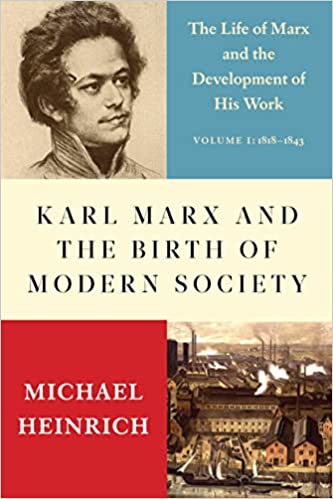
Description
Biography is a very old and still immensely popular genre. We find biographies of politicians, artists, revolutionaries, entrepreneurs and poets, and even of things, rivers and cities on the market today. For a long time, biographies were held to have a rather conservative reputation: they seemed to reproduce the ideological outlook according to which history is made by great men, thus enabling history to be written as the history of these great men. But this reputation got turned around for emancipatory purposes a good while ago: in the abolitionist, workers’ and women’s movements, biographies were written of people who were said to have no real history of their own. And, of course, the lives and histories of the leaders of these movements also became subjects of biographical encounters. This turning around raises difficult questions: for example, is it possible to write the biography of Karl Marx without reproducing the stereotype of the great man, and if so, how? Here, the political question becomes a poetic one, in the literal sense: it is a question of how to do it, of how to write a biography that, at a certain point, has to turn against conventions of its own genre.
After a brief historical introduction to biography, the workshop will address, in a first section, some general problems of biography writing. Then, in a second section, we will discuss particular problems regarding the cases of Marx and Lukács, drawing on Michael Heinrich’s biography of Marx, and Patrick Eiden-Offe’s work in progress on the life of Georg Lukács.
Bios:
Patrick Eiden-Offe is a literary and cultural historian and theorist. He has written on the intersection of poetics and politics in a wide range of topics, from Hegel via the poetry of the early worker’s movement to classical modernity’s encounter with fascism. Currently, he is engaged in writing a biography of the Hungarian literary theorist, political philosopher and revolutionary Georg Lukács.
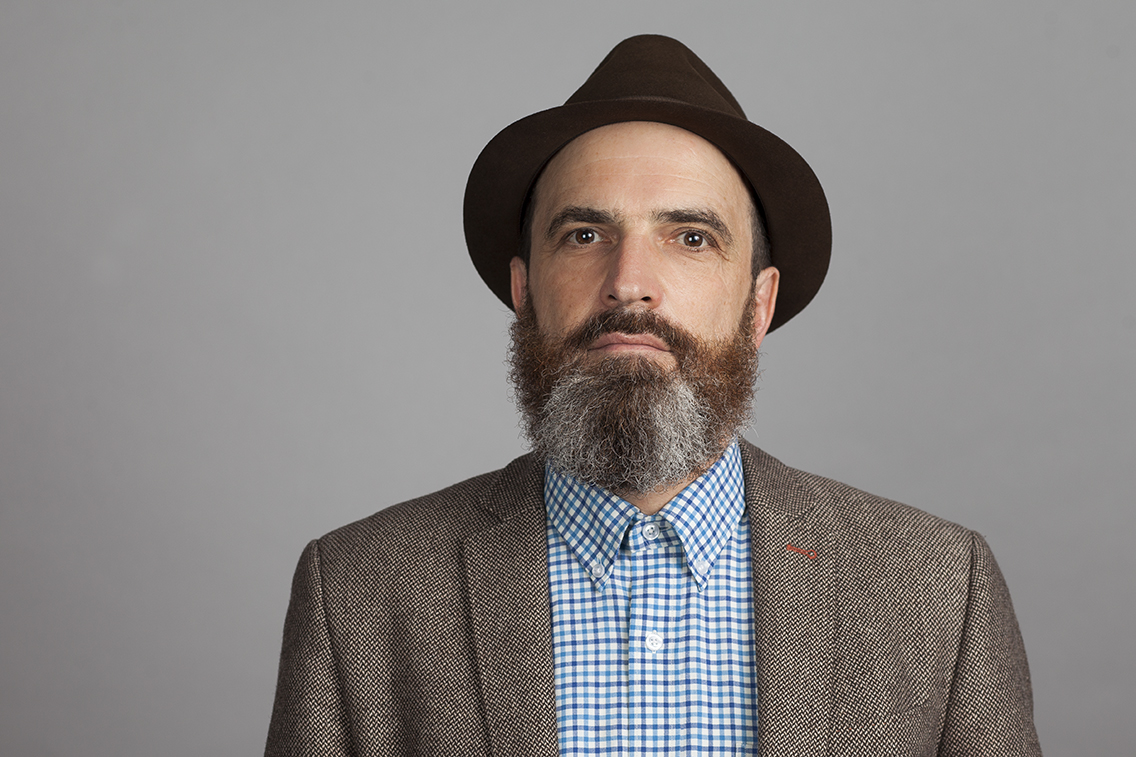
Michael Heinrich is a political scientist and mathematician. He was professor of economics at HTW Berlin until 2016, and served as managing editor of PROKLA, a leading German journal for critical social science, until 2014. For several years, he was also a collaborator on the Marx-Engels Gesamtausgabe (MEGA). Heinrich’s work has essentially centred on Marx's Critique of Political Economy and the development of his thought. Two of his works, Introduction to the Three volumes of Karl Marx's Capital, and How to Read Marx's Capital, are available in English. He is currently working on a four-volume biography of Marx's life and the development of his work titled Karl Marx and The Birth of Modern Society. The first volume appeared in German in 2018, followed by the English translation in 2019.
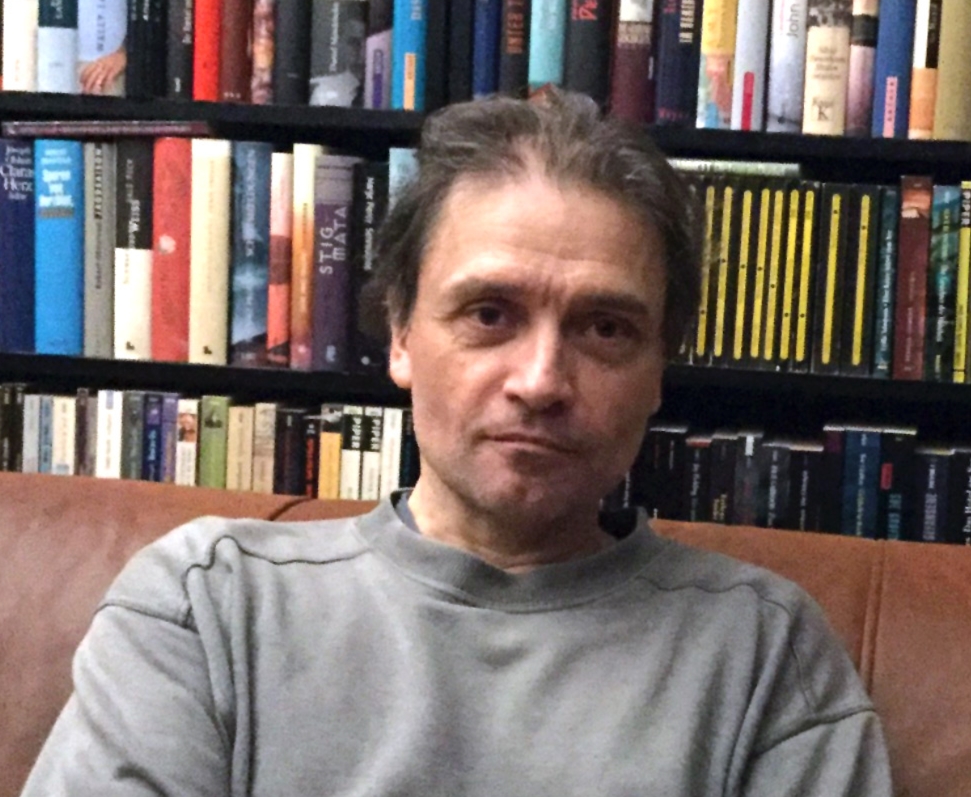
Disrupting Collective Destinies: Freud on History, Myth and Repetition
7-9pm Monday 5 June
Cindy Zeiher
Description
For Freud, memories of the past serve as affective markers for the cultivation of myth: we stick to historical signifiers in order to understand the antagonisms of the present. From a Freudian perspective however, history is not so reliable, but the myths accompanying its structure are. Accordingly, we can appreciate how patterns of history and its ‘witnessing’ provoke mythic memories. This seminar explores Freud’s ‘anthropology’ as a feminist intervention attuned to the particular suffering of patriarchal ‘authorities’.
Bio
Cindy Zeiher is a Lacanian psychoanalyst in training and teaches critical and psychoanalytic theory at the University of Canterbury Aotearoa/New Zealand. Her writings explore Freudian-Lacanian interventions and interpretations relating to contemporary questions of subjectivity and ontology. She recently completed a book manuscript interrogating musicologist/philosopher, Vladimir Jankélévitch’s radical refusal of politics from the perspective of Lacan’s theory of the speech-act. Her current project teases out on the (non)relation between music and philosophy. In addition, Cindy is a cellist and creative writer, sometimes combining both to express moods and curiosities via tone/sound-poem performances and recordings.
The Philosophy of Alain Badiou: The Dialectic of Formalization
Monday 3 - Friday 7, April 7-9 pm
Magdalena Germek
Description
 Discourse today is haunted by interesting, new, apocalyptic crisis-markers that paint a dramatic picture of our world: as one of pre-/post-global pandemic times; of the potential outbreak of a new world war; of the emergence of AI; of the total digitization of the world; of planetary ecological crisis, and so on. The general conclusion seems to be that powerful new things are happening, radical things. Things that spell an end to that which was before and that announce new times. The question of radical beginning or radical end is the one that we will pursue here. What does it mean that there is a novel beginning or a radical end. For something new to emerge, is it necessary to destroy the old? How can we orient ourselves before the appearance of some novelty? Under such circumstances, does extant knowledge help or disorient us? How to address the rumor of the new? Is it true or ideological discourse and where to draw the line?
Discourse today is haunted by interesting, new, apocalyptic crisis-markers that paint a dramatic picture of our world: as one of pre-/post-global pandemic times; of the potential outbreak of a new world war; of the emergence of AI; of the total digitization of the world; of planetary ecological crisis, and so on. The general conclusion seems to be that powerful new things are happening, radical things. Things that spell an end to that which was before and that announce new times. The question of radical beginning or radical end is the one that we will pursue here. What does it mean that there is a novel beginning or a radical end. For something new to emerge, is it necessary to destroy the old? How can we orient ourselves before the appearance of some novelty? Under such circumstances, does extant knowledge help or disorient us? How to address the rumor of the new? Is it true or ideological discourse and where to draw the line?
In this course, we will show how philosophy of Alain Badiou can help orient us within these discourses today. As Badiou was developing the essential concepts of his philosophy, there had also been much talk of radical ends and novel times: the end of grand narratives and beginning of postmodernism, the end of philosophy, of history, of big politics, and of the very idea of the world. His doctrine of the emergence of truths, and of a philosophy that is under the condition of those truths, aimed in part to steer us through these debates and propose something else.
The key operator, I contend, is what we might call Badiou’s “dialectic of formalization.” The dialectic of formalization announces a double procedure – an autonomous and creative procedure for the production of a new true form in the world and a process of formation of continuity in discontinuity. Moreover, the dialectic of formalization represents a connection between Badiou’s mature work and his early writings from the late 1960s. Even though in the 1960s and 1970s Badiou had not yet introduced the concepts of subject and truth in the sense that he understands them today, it is possible to support the thesis that there is an indisputable connection between Badiou’s early concept of formalization and his later concept of generic truth procedure.
The short course on Badiou’s philosophy will introduce those who are not acquainted with Badiou’s philosophy with his basic philosophical concepts and give those familiar with Badiou’s works a thought-provoking interpretation of his theory.
Works and approximate daily unfolding
Day 1:
Badiou, Logics of Worlds. Being and Event, 2, trans. Alberto Toscano, London, Continuum, 2009: Preface, Book I: Formal Theory of the Subject (Metha-Physics); Book V: The Four Forms of Change.
Day 2:
Badiou, “The Autonomy of the Aesthetic Process”, trans. Bruno Bosteels, in A. Badiou, The Age of the Poets: And Other Writings on Twentieth-Century Poetry and Prose, London and New York, Verso, 2014, pp. 111–131.
Day 3:
Badiou, Alain, Being and Event, trans. Oliver Feltham, London, Continuum, 2006. Introduction, Part I Being: Multiple and Void.
Day 4:
Badiou, Zachary Luck Fraser, and Tzuchien Tho, “The Concept of Model, Forty Years Later: An Interview with Alain Badiou”, trans. Zachary Luck Fraser and Tzuchien Tho, in A. Badiou, The Concept of Model, Melbourne, re.press, 2007, pp. 79-106.
Badiou, The Century, trans. Alberto Toscano, Cambridge, Polity, 2007. 9 Seven variations; 11 Avant-garedes; 13 The joint disappearances of Man and God.
Day 5:
Badiou, Manifesto for Philosophy, trans. Norman Madarasz, Albany, State University of New York Press, 1999. 1. Possibility; 2. Conditions; 6. Sutures; 10. Platonic Gesture; 11. Generic.
Badiou, Conditions, trans. Steven Corcoran. London, Continuum, 2008: I Philosophy Itself; II Philosophy and Mathematics
Bio
Magdalena Germek is an assistant at the Postgraduate School at the Research Centre of the Slovenian Academy of Sciences and Arts, where she obtained a PhD on the philosophy of Alain Badiou.
Germek is a member of the Založba /*cf. publishing house, a participant in the International Union of Left Publishers-IULP, and a member of the program committee of the International Hegel Association Aufhebung. She also cooperates with the informal organization of five non-profit Slovenian publishing houses Kooperativa THD, conceptualizing and organizing events.
Her current work focuses on the historical development of anatomy and the influence that philosophy and the visual arts has had on this development, paying special attention to the epistemological research of anatomical books and anatomical illustrations from the sixteenth century to the present day. Germek is guided by the idea of the necessity of substantive and methodological mutual communication between art, philosophy and science, which is why she collaborates with artists and scientists. She has written numerous reviews of various artistic projects (in the field of dance, performing arts and fine arts) and curated or co-curated different art exhibitions.
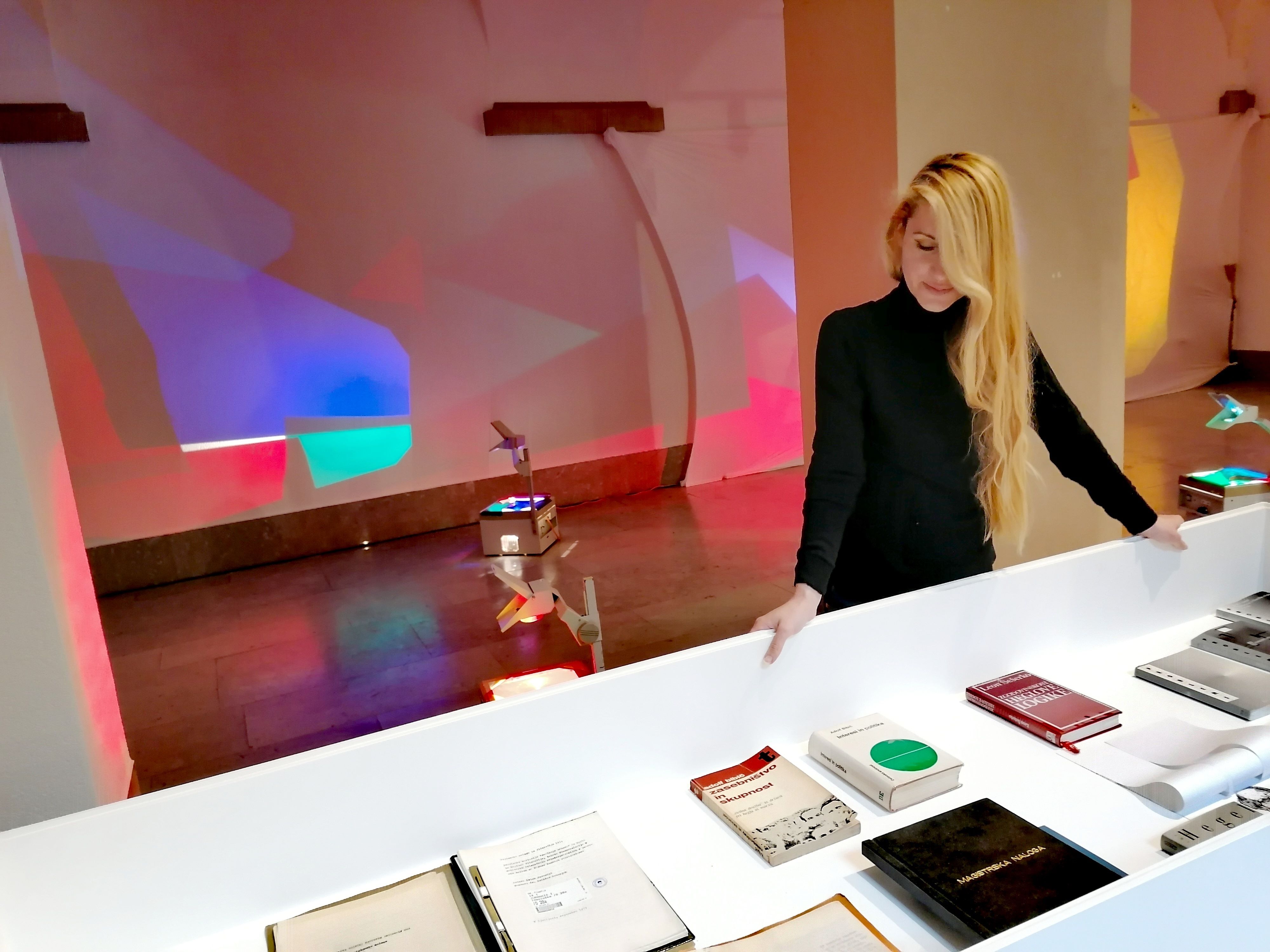
Care Ethics and Capitalism: Theodor Adorno & Theories of Care
4 Tuesdays: 25 April - 16 May 2023
Estelle Ferrarese
Description
This course aims to stage a dialogue between Critical Theory and the ethics of care. Care theories, which were conceived as a feminist response to the ultraliberalism under way in Anglo-Saxon countries, have yet to investigate the way in which they actually fostered this ultraliberalism. Indeed, despite the emphasis placed on work in their thinking, the majority of theorists of care, who almost never refer to Marxist feminism from the 1970s, leave the way care work is embedded in the capitalist order entirely unthought. Care work is deemed to be socially necessary work (as Tronto and Fischer’s famous definition makes explicit: ‘caring is a species activity’), but this work is not considered in its organization by and for a particular political economy. Its exteriority vis-à-vis the market - long total, now only partial - is thus not analysed as a condition of possibility for this same market but simply with a view to its consequences in terms of distributive and statutory justice for women. Within the constellation of care theories, it was during the 2000s, twenty years after they first emerged, that capitalism came to be a subject of focus due to a reflection on the international organization of care work and its influence on international migrations.
This course thus aims to think together from the outset care ethics and capitalism, or more precisely to think care as it is conformed by capitalism, and to evaluate its critical force.
This will be done around two themes: a reflection on the (gendered) processes of moral subjectivation in the capitalist form of life, and the question of whether it is possible to care for others on and through the market (with ethical consumption).
Texts:
Week 1: The moral subjects of capitalism 1. Bourgeois coldness
Max Horkheimer and Adorno Theodor W., Dialectic of Enlightenment, trans. Edmund Jephcott (Stanford: Stanford University Press, 2002).
(This book will then be used as a counterpoint in all the courses that follow)
Week 2: The moral subjects of capitalism 2. A gendered logic
Joan Tronto, Moral Boundaries: A Political Argument for an Ethic of Care (New York: Routledge, 1993).
Week 3: Can we care for others on and through the market ? 1 Care against excess
Nancy Fraser, Cannibal Capitalism. How Our System Is Devouring Democracy, Care, and the Planet—and What We Can Do About It (New York, Verso, 2022).
Week 4: Can we care for others on and through the market? 2 Fair price and commensurability
Aristotle’s Nicomachean Ethics, trans. Robert C. Bartlett and Susan D. Collins (Chicago: University of Chicago Press, 2011), Book 5
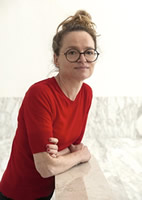

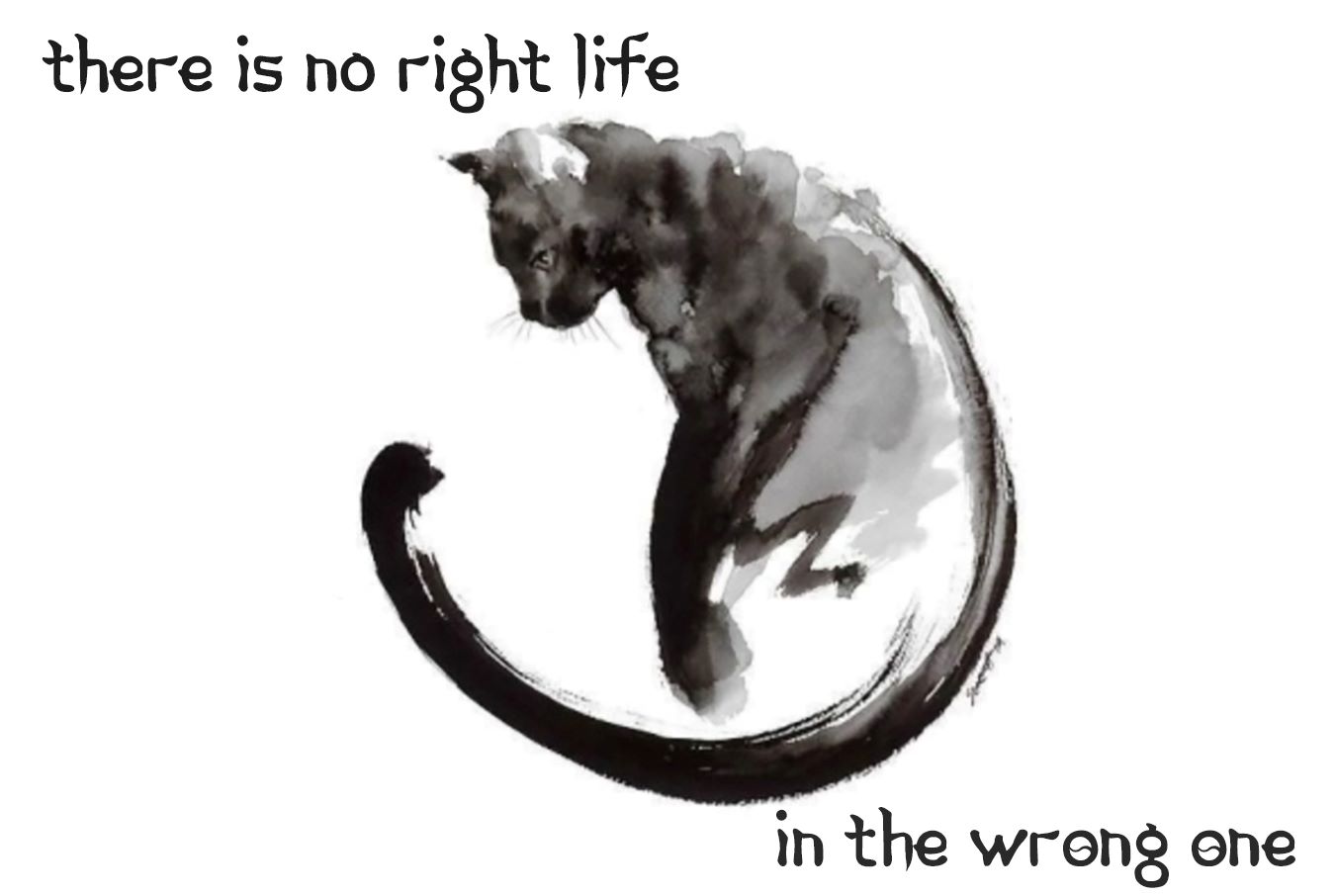
Bio:
Estelle Ferrarese is professor of moral and political philosophy at Picardie-Jules-Verne University (France). She is Senior Member of the Institut Universitaire de France.
She has been Visiting Professor at the New School for Social Research in New York, Alexander von Humboldt-Foundation fellow at the Humboldt Universität in Berlin, and research fellow at the Marc Bloch Franco-German Center of Social Science Research, in Berlin.
Her books include: Le Marché de la Vertu. Critique de la consommation éthique, Paris, Vrin, forthcoming in 2023, Vulnerability and Critical Theory (Boston/ Leiden, Brill: 2018), La fragilité du souci des autres. Adorno et le care (Lyon: ENS éditions, 2018); English trans. Adorno and the Fragility of Caring for Others (Edinburgh University Press, 2020), Ethique et politique de l'espace public. Habermas et la discussion (Paris: Vrin, 2015). She is also the author of numerous articles on Critical Theory, forms of life, and vulnerability as a political category.
Speaking Freely, Speaking Truly: Michel Foucault on the Politics and Ethics of Parrhesia
5 Wednesdays: 19 April - 17 May 2023
Richard Dienst
Description
In the final years of his life, Michel Foucault turned his attention to the practice of parrhesia—an ancient Greek term designating frank, fearless, and free speech. Foucault wanted to show how parrhesia migrated from political situations, where forthright speaking would be essential for democracy, to ethical and philosophical contexts where it would sustain particular ways of living and distinctive ways of speaking the truth. As Foucault explored these distinctions, he elaborated an immense range of questions about education and friendship, critique and dissent, care and courage, and many other essential ideas.
In this course we will read Foucault's final lecture course at the Collège de France, where he shows how the ancient texts still speak to contemporary theories of subjectivity, discourse, and truth. But that is not all: Foucault's analysis of parrhesia reaches a remarkable culmination in the figure of Diogenes the Cynic, whose extreme repudiation of norms puts politics, ethics, and philosophy itself into question. Here we can glimpse a radical parrhesia that continues to animate militant and aesthetic antagonism to the ruling powers of our own times.
Key readings:
- Michel Foucault, The Courage of Truth
- Maggie Nelson, On Freedom
- plus essays and excerpts from Peter Sloterdijk, Giorgio Agamben, and others.
Week 1
We will begin by situating the lectures on parrhesia in the context of Foucault's larger project, and by situating Foucault in the arrival of "French theory" in the Anglophone world. We will examine the main philosophical and political contours of parrhesia in the first four lectures in The Courage of Truth (from 1 February to 15 February). Here Foucault describes a shift from the role of parrhesia in Athenian democracy to its emergence as an element of the "care of the self." We will also introduce some of the key ideas of Pierre Hadot, whose work on ancient philosophy partly inspired Foucault's approach.
Week 2
In the lectures from 22 February to 7 March, Foucault traces the unfolding of parrhesia as an ethical practice, centered on the major figures of Socrates and Diogenes. Alongside the classic questions—To whom do we speak the truth? From whom do we expect the truth?—we encounter the possibility that parrhesia does not operate according to the customary rules of social relationships. With the emergence of Cynicism in Foucault's account, we see that the challenge of parrhesia bears on the way we try to talk about life itself. Here we will introduce Giorgio Agamben's concept of the "form-of-life" and talk about how parrhesia recasts our understanding of ethical and political commitments.
Week 3
In his final lectures, Foucault gives the practice of parrhesia a new range, moving out of political and domestic spaces and out onto the streets. Perhaps speaking the truth requires a break from prevailing notions of philosophy, and opens onto the prospect of "another life" and "another world." We will try to draw out the possibilities raised by Foucault, questioning the limits of education, conversation, and community. More contemporary texts by Tiqqun, Claire Fontaine, and Endnotes may offer some further examples.
Week 4
It would be hard to talk about contemporary cynicism without turning to Peter Sloterdijk's Critique of Cynical Reason. In this session we will give an account of Sloterdijk's own approach to "telling the truth" and "changing your life," reading excerpts from his Critique as well as more recent works. Sloterdijk will thus offer one way to map the vicissitudes of the Foucauldian project, and indeed of "the theory movement" more generally.
Week 5
In our final session, we will discuss a rather different account of freedom and discourse today: Maggie Nelson's 2021 book of essays titled On Freedom. Addressing art, sex, drugs, and radical politics, Nelson provides not only a critical assessment of the philosophical ideas raised by the tradition of parrhesia, but a particular performance of "fearless speech" attuned to current controversies.
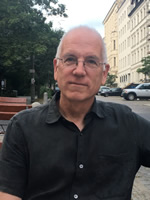
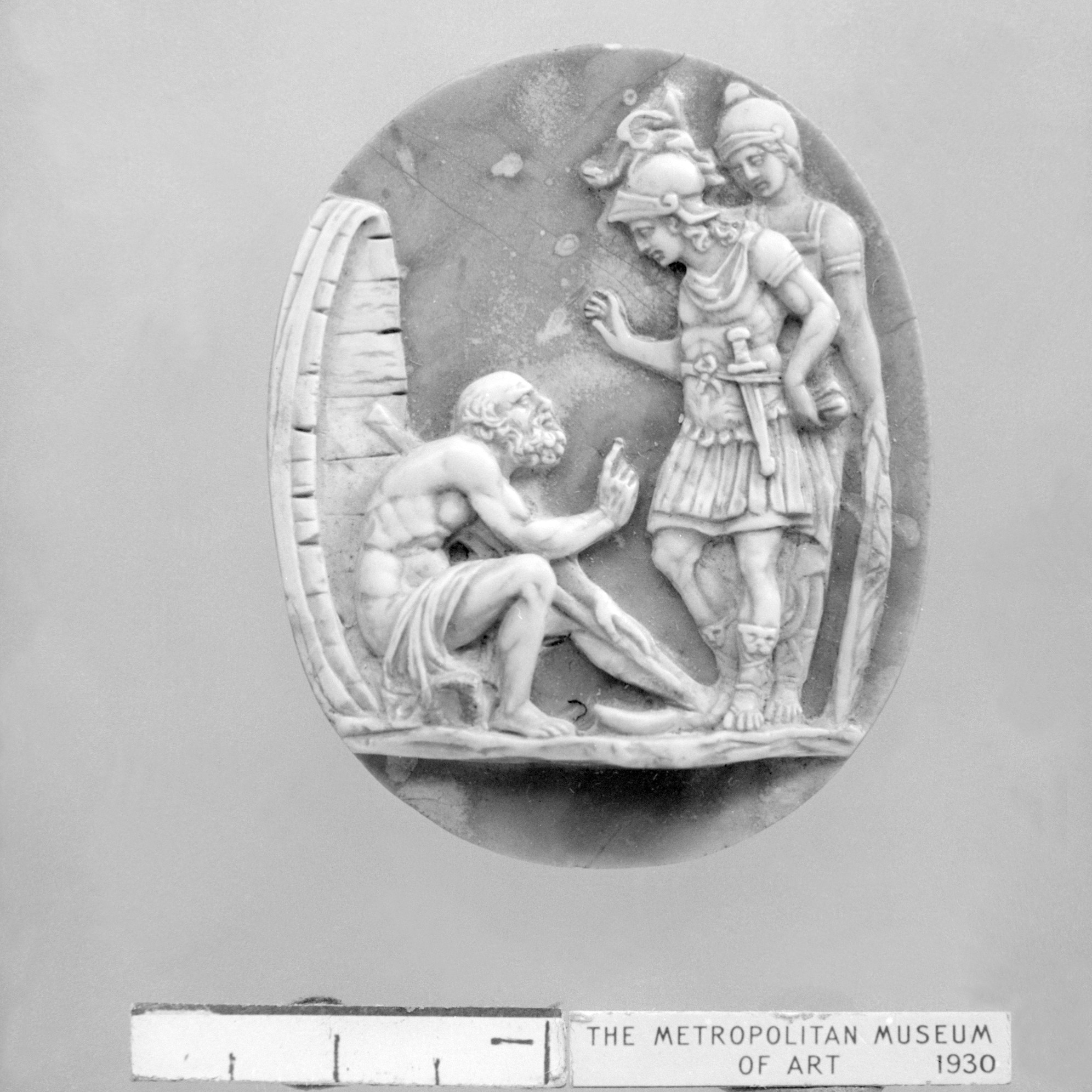
Bio:
Richard Dienst is Professor Emeritus from the Department of English at Rutgers University, where he taught courses in theory, visual media, and literature. He is the author of three books—Still Life in Real Time: Theory after Television (Duke University Press), The Bonds of Debt: Borrowing against the Common Good (Verso Books), and Seeing from Scratch: Fifteen Lessons with Godard (Caboose Books)—as well as numerous essays on politics and culture.
Global Politics Today:
5 Thursdays: 20 April - 18 May 2023
Steven Corcoran
Description
France is erupting, again. The media tells us that the French are ‘unhappy’ with ‘Macron’s’ reforms. But this struggle for ‘happiness’, we know, is far from a local complaint. The last decade has seen a vast number of struggles form around the planet, announcing another path to that which the world, under the dictates of liberal capitalism and the hegemony of representative government, is currently rushing headlong down. Despite the new perspectives opened up by these struggles, the question of their duration is a pressing one. Whether we are talking about the various squares movements – from the Arab Spring to the Indignados in Spain and Syntagma Square in Greece – indigenous struggles around the world, or ecological movements, they generally tend to become deflated through some mix of governmental co-optation in forms of representation and outright repression. The upshot is a representation of them (the ‘unhappy’ French, the democracy-aspiring Egyptians) that becomes dominant precisely insofar as it is able to obscure their stakes and direction.
If this dominant representation can effectively prevail, it clearly has to do with the largely negative slogans around which these movements coalesce. Our challenge here is nonetheless to draw a different picture of these struggles. We aim to delve further into the perspectives they open up, their global thinking (after all, the proletariat is now everywhere), their attempts at creating forms of the common good, their eschewing of all forms of identity, and the way they define political organization in terms of instrumentation and not representation.
Week 1: Representative Government vs Democracy: Jacques Rancière on egalitarian history
Week 2: The Hatred of Democracy and Logical Revolt
Week 3: The Communist Hypothesis: Alain Badiou on the idea that "there is One world"
Week 4: The Situation of Global Politics Today: Remarks on Contradictions, Organization, Strategy & Ecology.
Week 5: TBA
Key Readings:
- Bernard Manin, The Principles of Representative Government (Cambridge: Cambridge University Press., 1997)
- Jacques Rancière, Dis-agreement: Politics and Philosophy, trans. Julie Rose (Minnesota: University of Minnesota Press, 2004).
- Jacques Rancière, Hatred of Democracy, trans. Steven Corcoran (London: Verso, 2006)
- Karl Marx and Friedrich Engels, The Communist Manifesto, with an Introduction by David McLellan (Oxford: Oxford University Press, 1992).
- Alain Badiou, The Communist Hypothesis, trans. David Macey and Steven Corcoran (London: Verso, 2010).
- Alain Badiou, The Century, trans. Alberto Toscano (Cambridge: Polity Press, 2007), Chapter 6, ‘One Divides into Two’.
- Alessandro Russo, The Cultural Revolution and Revolutionary Culture (Durham: Duke University Press, 2020).
- Alain Badiou, Greece and the Reinvention of Politics, trans. David Broder (London: Verso, 2018).
- Jacques Rancière, What Times Are We Living In? trans. Steven Corcoran (Cambridge: Polity, 2020).
- Andreas Malm, The Progress of This Storm: Nature and Society in a Warming World (London/New York: Verso, 2017)
Bio
Steven Corcoran’s philosophical work of writing, editing, translating has chiefly involved a discernment of artistic and political truths. He is the editor of The Badiou Dictionary and has edited/translated over 20 works of philosophy, including, among others, by Alain Badiou (Conditions, Polemics and The Idea of Communism), by Jacques Rancière (Dissensus, Hatred of Democracy, The Edges of Fiction, What Times Are We Living In?), by Frantz Fanon (Alienation and Freedom), and three recent works by Achille Mbembe (Necropolitics, The Earthly Community, and Brutalism). His current projects include a book on egalitarian political organization and imagination.
